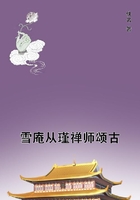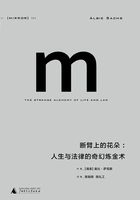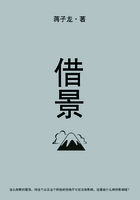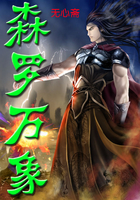* This probably was the conception of Spinoza. Christ for him is the wisdom of God manifested in all things, and chiefly in the mind of man. Through him we reach the blessedness of an intuitive knowledge of God. Salvation is an escape from the "inadequate"ideas of the mortal human personality to the "adequate" and timeless ideas of God.
Now we of the modern way would offer the following criticisms upon this apparent compromise between our faith and the current religion.
Firstly, we do not presume to theorise about the nature of the veiled being nor about that being's relations to God and to Life.
We do not recognise any consistent sympathetic possibilities between these outer beings and our God. Our God is, we feel, like Prometheus, a rebel. He is unfilial. And the accepted figure of Jesus, instinct with meek submission, is not in the tone of our worship. It is not by suffering that God conquers death, but by fighting. Incidentally our God dies a million deaths, but the thing that matters is not the deaths but the immortality. It may be he cannot escape in this person or that person being nailed to a cross or chained to be torn by vultures on a rock. These may be necessary sufferings, like hunger and thirst in a campaign; they do not in themselves bring victory. They may be necessary, but they are not glorious. The symbol of the crucifixion, the drooping, pain-drenched figure of Christ, the sorrowful cry to his Father, "My God, my God, why hast thou forsaken me?" these things jar with our spirit. We little men may well fail and repent, but it is our faith that our God does not fail us nor himself. We cannot accept the Christian's crucifix, or pray to a pitiful God. We cannot accept the Resurrection as though it were an after-thought to a bitterly felt death. Our crucifix, if you must have a crucifix, would show God with a hand or a foot already torn away from its nail, and with eyes not downcast but resolute against the sky; a face without pain, pain lost and forgotten in the surpassing glory of the struggle and the inflexible will to live and prevail. . . .
But we do not care how long the thorns are drawn, nor how terrible the wounds, so long as he does not droop. God is courage. God is courage beyond any conceivable suffering.
But when all this has been said, it is well to add that it concerns the figure of Christ only in so far as that professes to be the figure of God, and the crucifix only so far as that stands for divine action. The figure of Christ crucified, so soon as we think of it as being no more than the tragic memorial of Jesus, of the man who proclaimed the loving-kindness of God and the supremacy of God's kingdom over the individual life, and who, in the extreme agony of his pain and exhaustion, cried out that he was deserted, becomes something altogether distinct from a theological symbol.
Immediately that we cease to worship, we can begin to love and pity.
Here was a being of extreme gentleness and delicacy and of great courage, of the utmost tolerance and the subtlest sympathy, a saint of non-resistance. . . .
We of the new faith repudiate the teaching of non-resistance. We are the militant followers of and participators in a militant God.
We can appreciate and admire the greatness of Christ, this gentle being upon whose nobility the theologians trade. But submission is the remotest quality of all from our God, and a moribund figure is the completest inversion of his likeness as we know him. AChristianity which shows, for its daily symbol, Christ risen and trampling victoriously upon a broken cross, would be far more in the spirit of our worship.** It is curious, after writing the above, to find in a letter written by Foss Westcott, Bishop of Durham, to that pertinacious correspondent, the late Lady Victoria Welby, almost exactly the same sentiments I have here expressed. "If I could fill the Crucifix with life as you do," he says, "I would gladly look on it, but the fallen Head and the closed Eye exclude from my thought the idea of glorified humanity. The Christ to whom we are led is One who 'hath been crucified,' who hath passed the trial victoriously and borne the fruits to heaven. I dare not then rest on this side of the glory."I find, too, a still more remarkable expression of the modern spirit in a tract, "The Call of the Kingdom," by that very able and subtle, Anglican theologian, the Rev. W. Temple, who declares that under the vitalising stresses of the war we are winning "faith in Christ as an heroic leader. We have thought of Him so much as meek and gentle that there is no ground in our picture of Him, for the vision which His disciple had of Him: 'His head and His hair were white, as white wool, white as snow; and His eyes were as a flame of fire: and His feet like unto burnished brass, as if it had been refined in a furnace; and His voice was as the voice of many waters. And He had in His right hand seven stars; and out of His mouth proceeded a sharp two-edged sword; and His countenance was as the sun shineth in its strength.'"These are both exceptional utterances, interesting as showing how clearly parallel are the tendencies within and without Christianity.
4. THE PRIMARY DUTIES
Now it follows very directly from the conception of God as a finite intelligence of boundless courage and limitless possibilities of growth and victory, who has pitted himself against death, who stands close to our inmost beings ready to receive us and use us, to rescue us from the chagrins of egotism and take us into his immortal adventure, that we who have realised him and given ourselves joyfully to him, must needs be equally ready and willing to give our energies to the task we share with him, to do our utmost to increase knowledge, to increase order and clearness, to fight against indolence, waste, disorder, cruelty, vice, and every form of his and our enemy, death, first and chiefest in ourselves but also in all mankind, and to bring about the establishment of his real and visible kingdom throughout the world.















